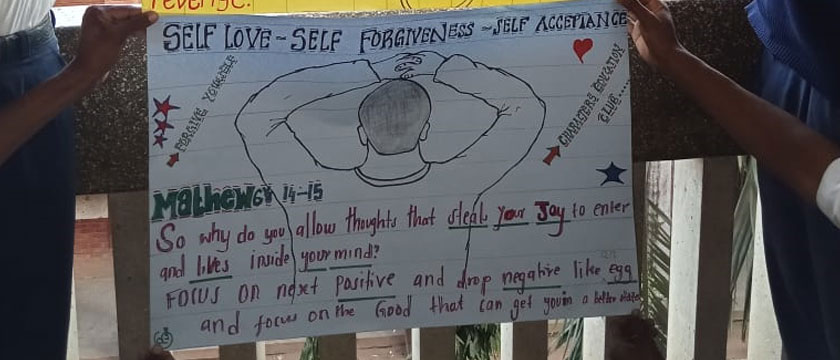On 21 st September 2021, the Centre for Character and Leadership (CCL) commemorated the International Day of Peace themed “Recovering better for an equitable and sustainable World’ through planting trees and offering students mentorship. The day is purposed to promote the ideals of peace to the human race by providing opportunities to build a peaceful world where all humanity can live together without enmity regardless of their skin color, religion, nationality and ethnicity. Throughout human history, the yearning for lasting peace has remained to be a universal dream. However, true peace can only be realized by raising individuals of outstanding character. It is in this background that CCL inspired the students of Highway Manyatta Mixed Secondary School to strive to be peace loving citizens and environmental stewards.
The 2021 peace theme aimed to inspire humanity from across the world to think creatively and collectively about how to transform our world into one that is more inclusive, sustainable and healthier.
Speaking during the tree planting activity, the School Principal urged the students to be agents of peace as he said, “always strive in developing peace within the self as a foundation of your character growth and harmonious existence within the school.”
The school leadership together with the students has committed in planting and taking care of trees as part of their environment responsibility. The activity was exciting as students, parents’ representatives and teachers took turns to plant the trees and water them. Students were also urged to each adopt a tree, tag a virtue and nurture the virtue within self as the tree grows. During the mentorship session, students were engaged on an interactive learning lesson with a focus on helping them to develop a positive attitude, reading culture and goal setting as they prepare to sit for the end of term exams. Guided by the school motto which says ‘Education is Power’ the students were encouraged to pursue their dreams and keep trusting in God. Also, students were challenged to believe in the self, manage their time well, set SMART goals, avoid the dream killers, love their teachers and school, complete assignments and submit for marking, develop personal time table, use of peer teaching and possess a winners’ spirits among others.
On developing a positive attitude, the speaker emphasized that “embrace a positive attitude since it’s the most important factor in determining success or failure.”
Towards the end of the lesson the students chanted that “I believe in myself because I know I am the best.” CCL appreciates the Kenya Forest Service (KFS) for the donations of trees and the school for taking ownership in environment conservation.



